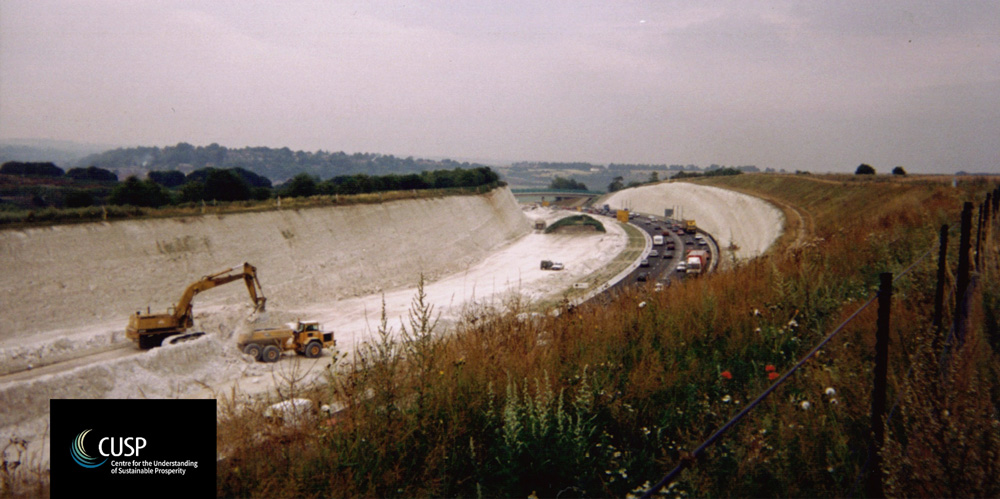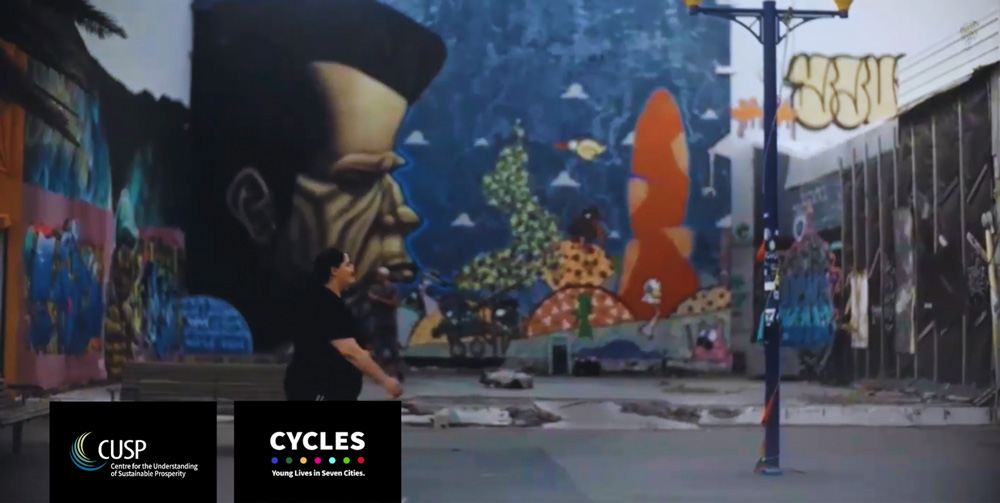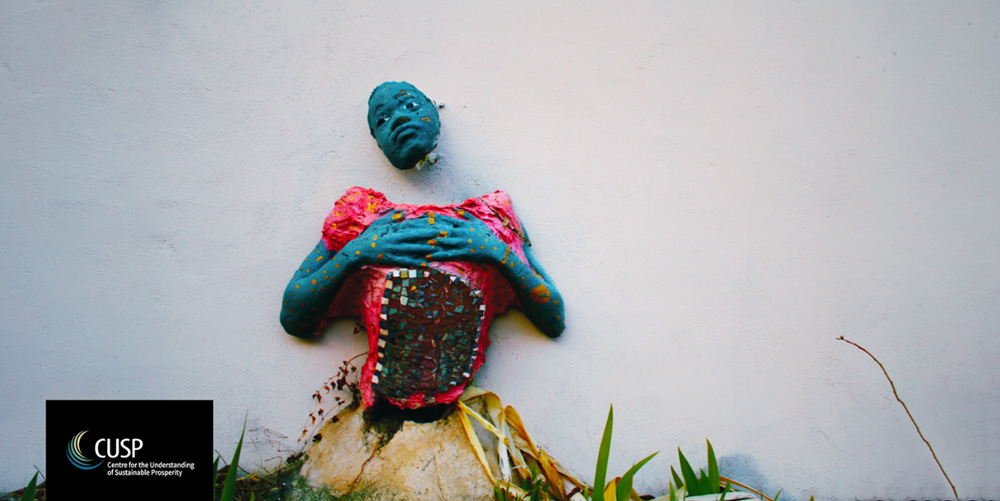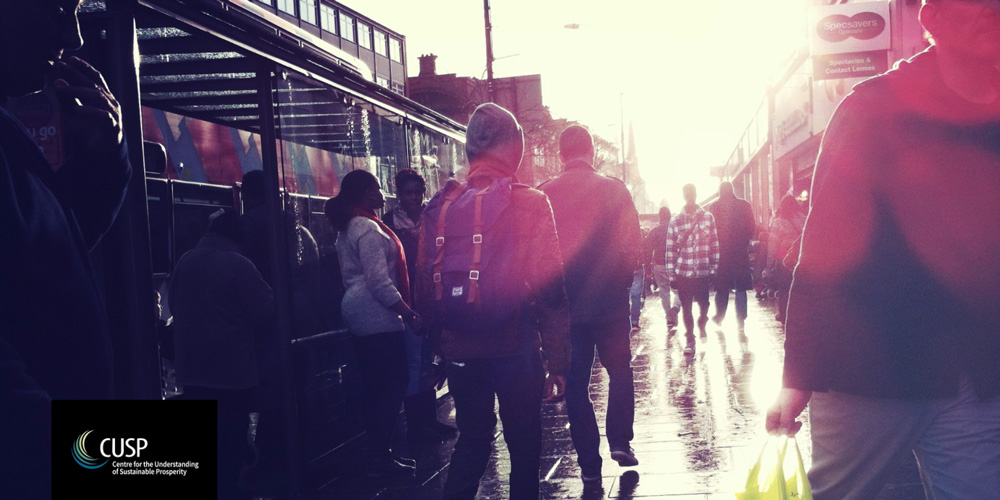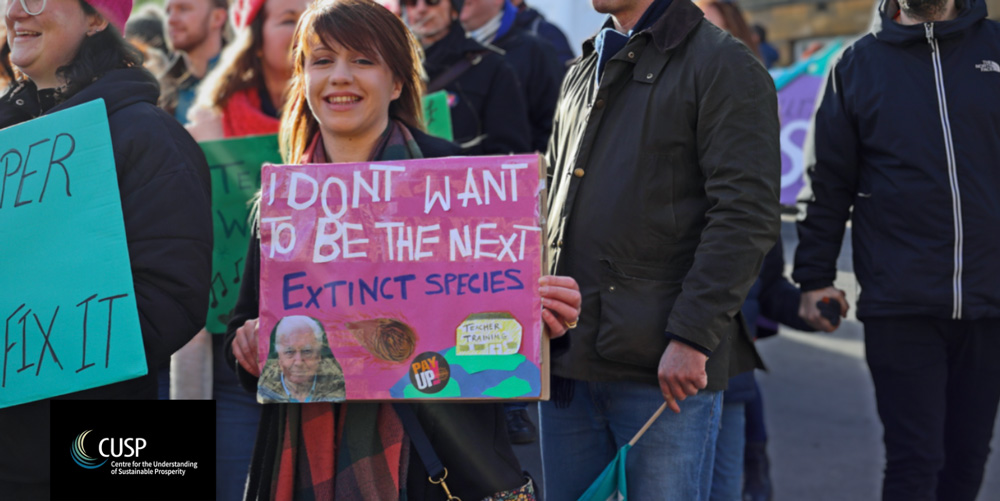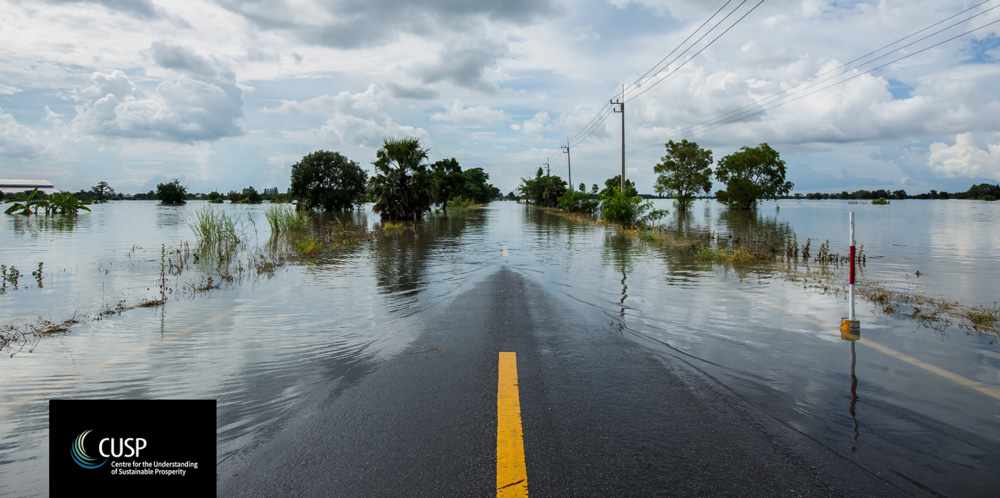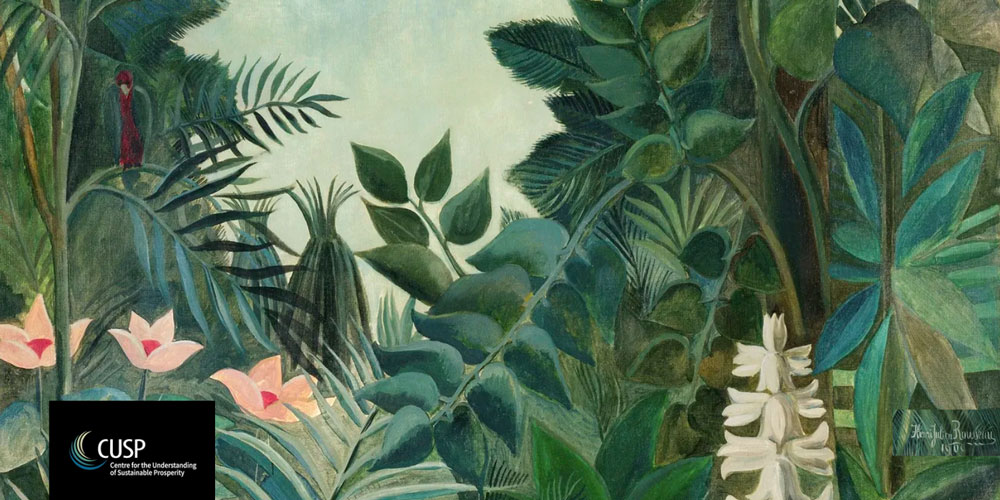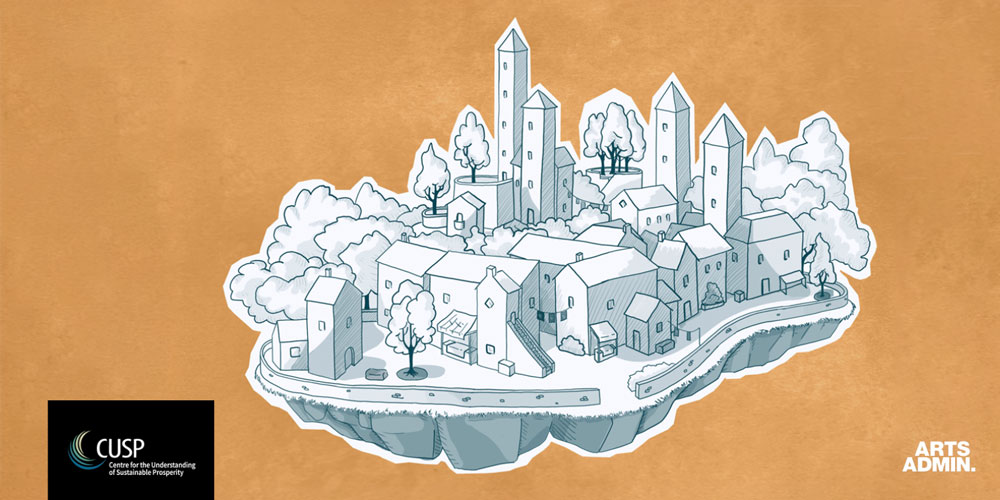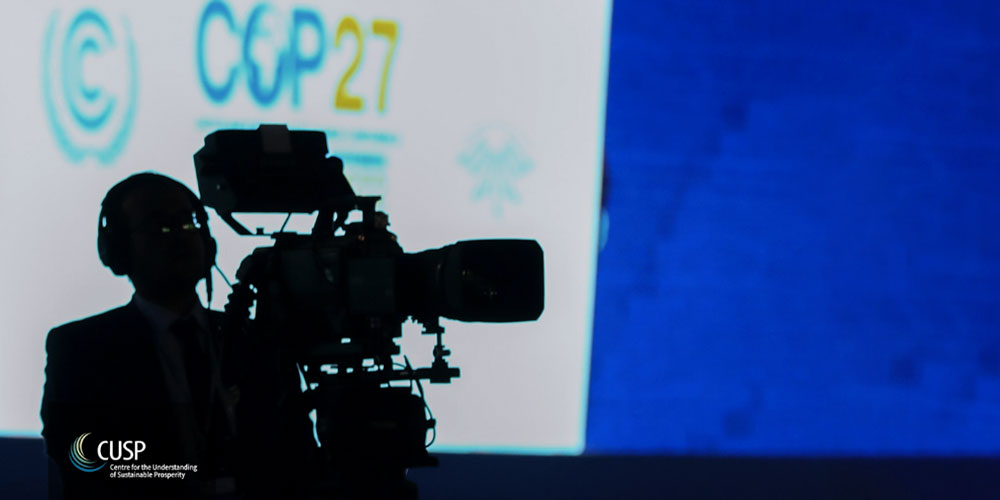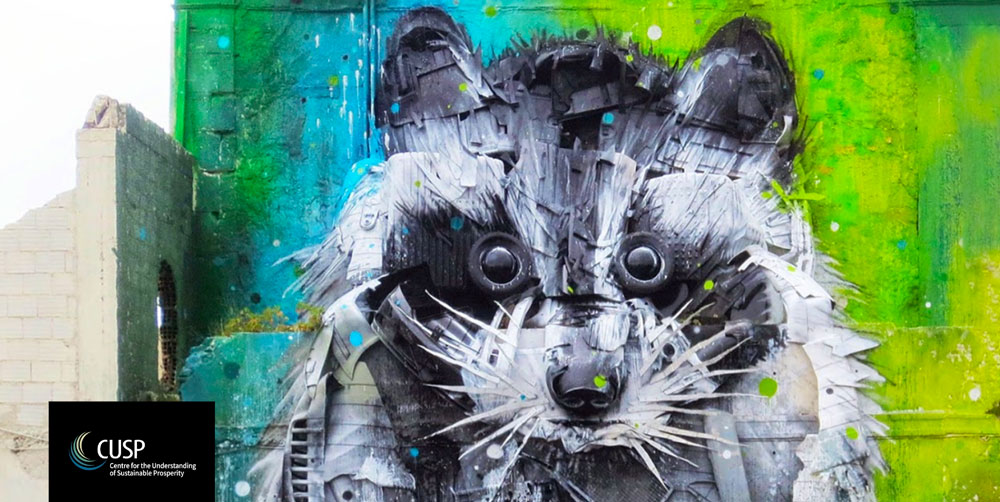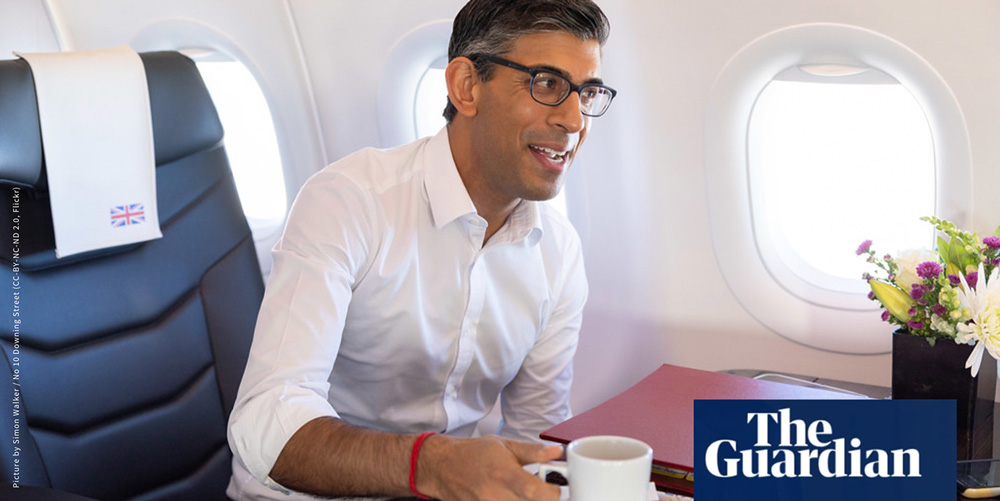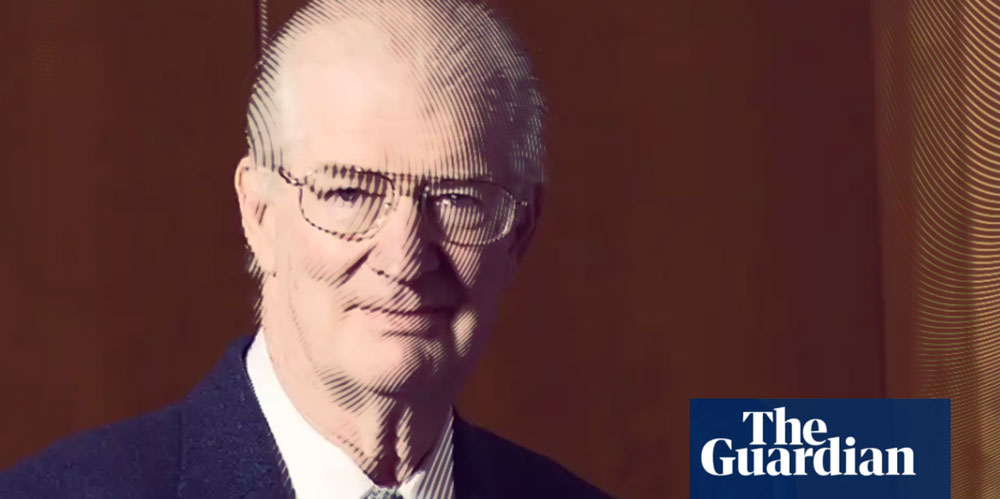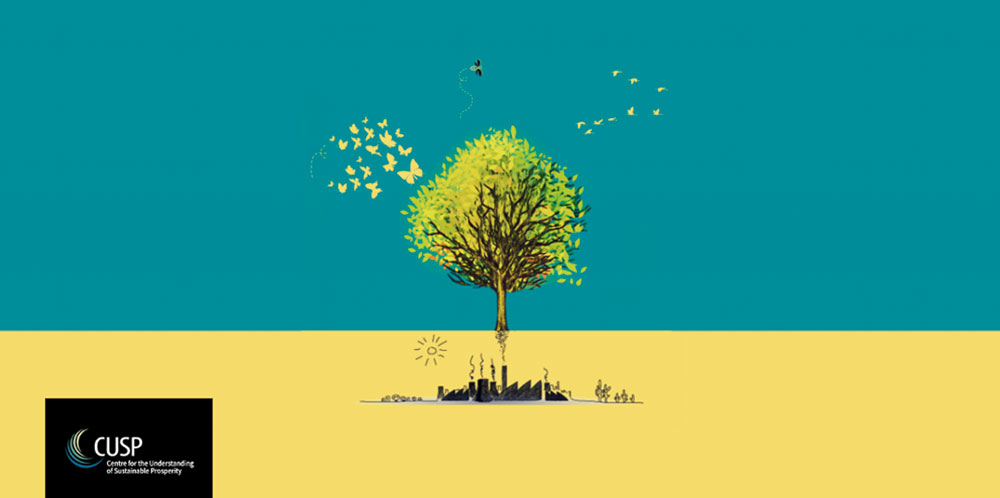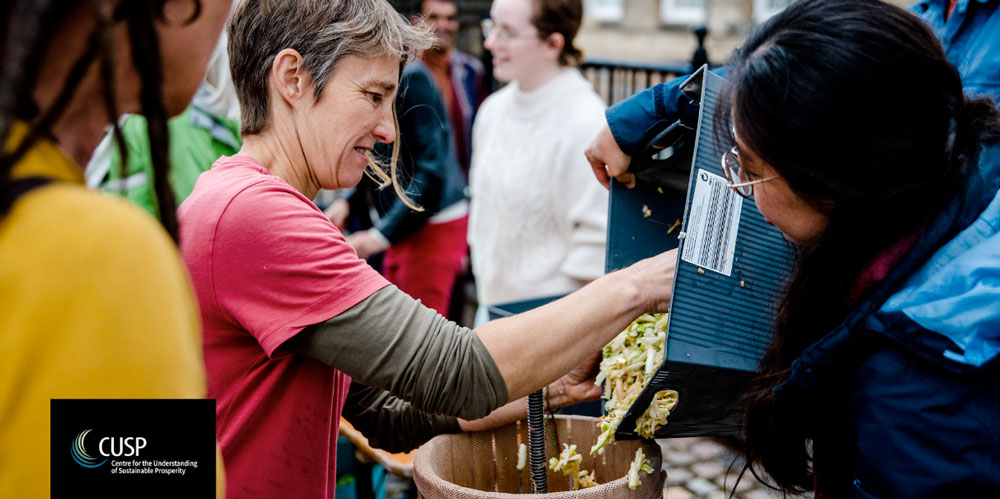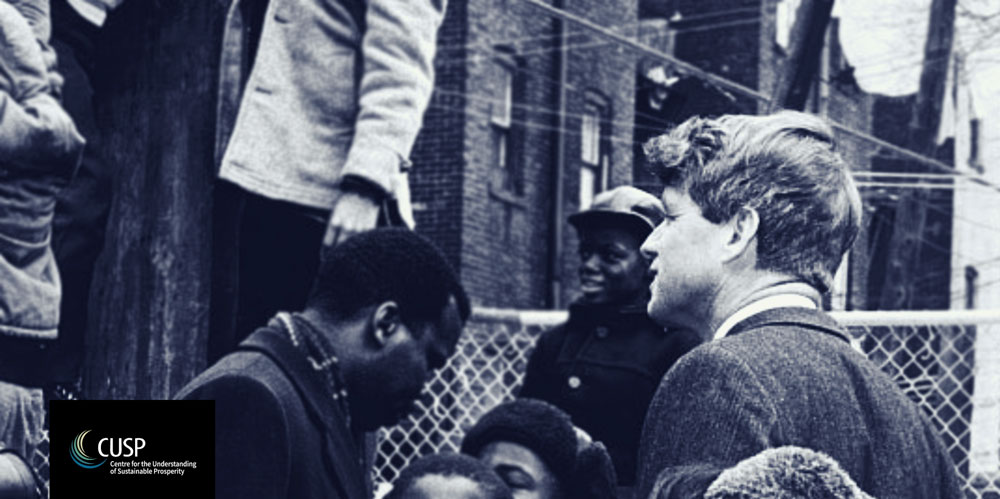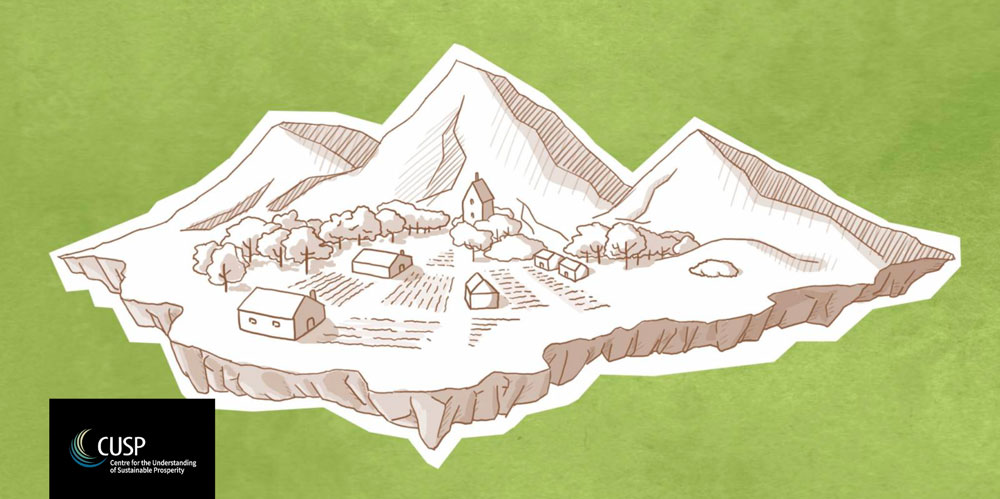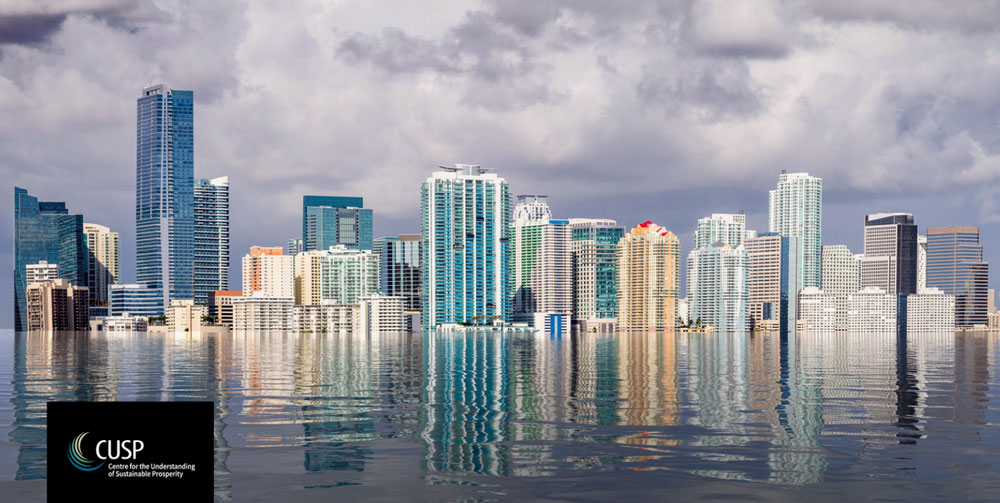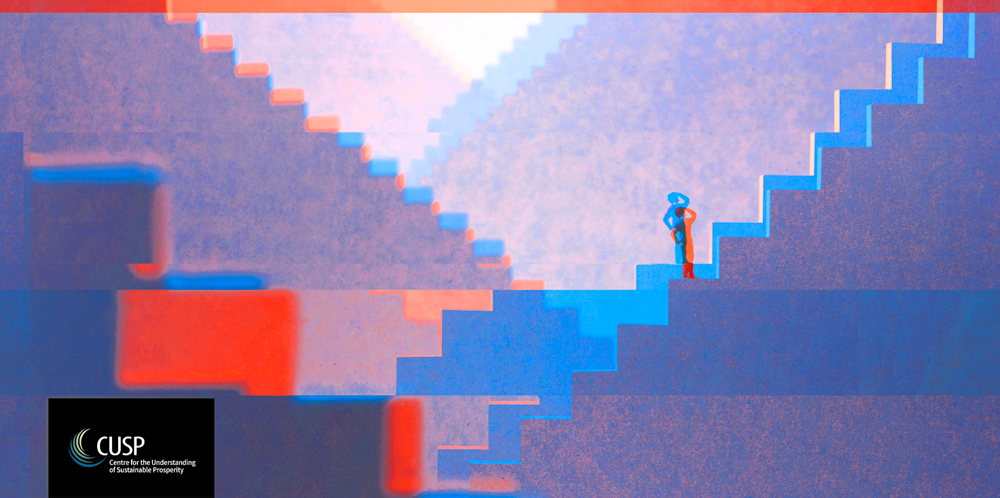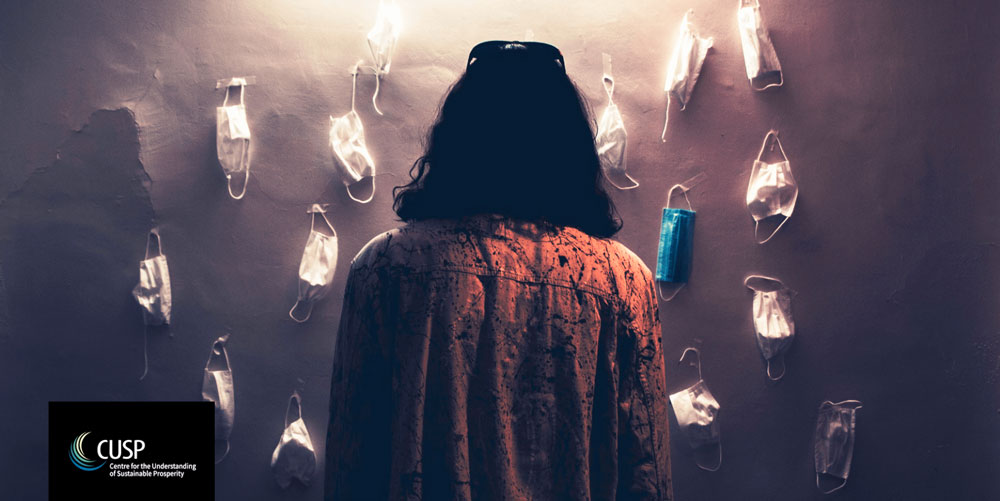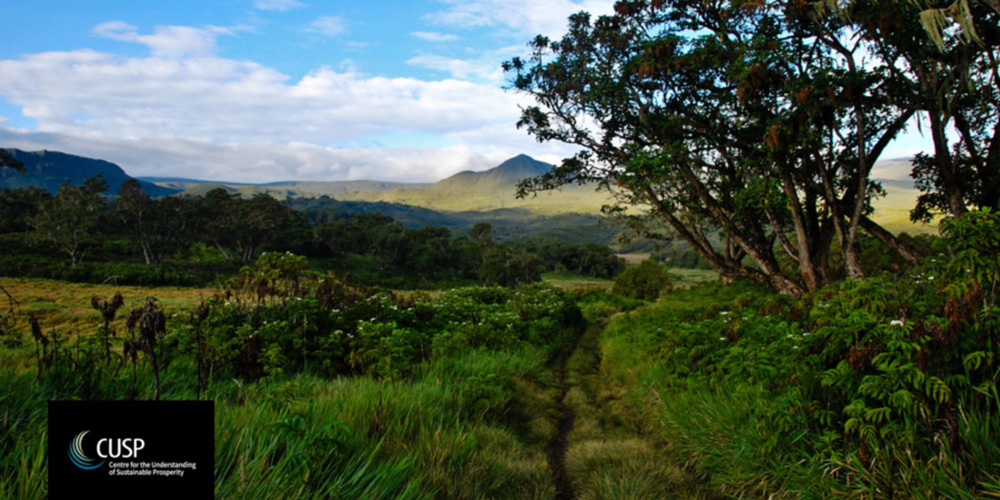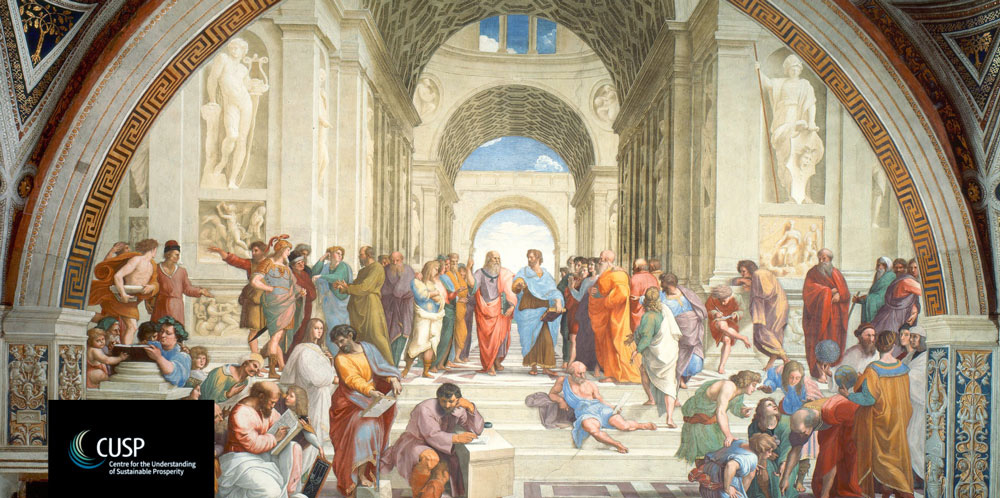BLOG
For the podcast series Mum, Will the Planet Die Before I Do, British MP Nadia Whittome spoke to Babita Sharma about her efforts to bring climate education into the curriculum. In this blog post, Katy Glassborow reflects on their conversation.
In June this year, Iceland’s Prime Minister Katrin Jakobsdóttir hosted the first Wellbeing Economy Forum in Reykjavík. Tim Jackson’s keynote there explored the relationship between the ‘wellbeing economy’ and the ‘growth economy’ teasing out where the logic of wellbeing differs from the logic of growth.
Emma Must was a Library Assistant in the early 1990s when she got involved in a campaign to stop a motorway extension being built through Twyford Down. Along with six other people, she was sent to prison for trying to save the hill where she played as a child.
For the past six years, we have been investigating how flow experiences can contribute to delivering sustainable prosperity. In this blog, Amy Isham reflects on the tensions that arise in the treatment of flow across disciplines, using findings from her recent journal articles.
The investment in public transport announced in the 2023 Budget by the New Zealand Government will have far-reaching benefits for the climate and for overall wellbeing. But our CYCLES study shows young people want much more.
Growth is unsustainable. But the world beyond growth is frightening. We have built an economy that is dependent on growth. We must learn anew how society works, when the economy is not growing. And we need to confront the impossibility theorems presented to us by those who resist change.
Care is an anathema to capitalism. Its virtues are capitalism’s vices. Its employment-rich foundation for wellbeing is capitalism’s ‘productivity crisis’. Yet, without care we are nothing, our progress is nothing. Without care there is no economy.
A talk delivered by Tim Jackson for the Wellbeing Economy Alliance Ireland Hub, launching the Community of Practice for Artists and Creatives, March 2023.
Rosamund Adoo-Kissi-Debrah lost her daughter to acute asthma, exacerbated by air pollution, a decade ago. She has been fighting for clean air ever since. This is her extraordinary story.
Striking pushes against the core capitalist dynamics also responsible for global warming, CUSP researcher Simon Mair writes. Reducing fossil fuel use will not happen without a major shift in the centres of power. Strike action is one way to build towards these shifts, and in this way can be a precursor to stronger climate action.
The UK is missing a strong and strategic coalition of pro-climate interest groups, CUSP fellow Steven R. Smith writes. If we want to ‘take back control’ and have real ‘energy security’, we’re going to have to break the silent stand-off between politicians and the public.
Already, climate change plays out in all parts of the world. Every further increment of warming will bring rapidly escalating hazards, exacerbating more intense heatwaves and floods, ocean warming and coastal inundation. CUSP researcher Bronwyn Hayward reflecting on the IPCC’s AR6 Synthesis report.
Politicians are wrong to believe that we can only afford decent care in good economic times, Tim Jackson writes. Without health there is no wealth. Without care there is no health. Care is investment. It’s not a luxury consumer item.
Business and finance play a key role in advancing the biodiversity and climate agenda. Small and medium size enterprises (SMEs) receive too little attention in the quest. Work by CUSP researchers at Middlesex University shows that it overlooks both the overall economic contribution of SMEs, as well as their environmental impacts.
Speaking to our addiction to productivity, to usefulness, about how this feeds capitalism, colonial violence, environmental destruction and personal burnouts, in this blog Malaika Cunningham argues that rest and slowness might actually be the most important act of resistance we can enact.
For many people, COP27 has left much to be desired. So long as money and profitability are dominating the conversations, Smith Mordak writes, we’re trapped in a Truman Show.
A recent CUSP paper explores how the use of hashtags on Instagram shapes the visibility and recognisability of understandings of the good life in the discursive field created by #goodlife on the platform. This blog provides some reflections.
With the mounting cost of living crisis and environmental challenges affecting rural areas, there is a need to look beyond ‘business as usual’, CUSP researcher Ian Vickers writes, summarising key findings from recent NICRE funded work, exploring rural enterprise across the UK.
The siren call of climate-burning expansion bewitches British politics. More of the same will emerge in the autumn statement, Tim Jackson writes. To all intents and purposes, we’re already living in a post-growth world. And it’s time to take that challenge seriously.
England’s housing strategy will consume our entire carbon budget by 2050—there are alternatives, but they face political and economic barriers.
“It is the fate of most economists that their ideas become dated, however relevant they were to the times in which they lived. Not so with Herman Daly. The pressure of the human economy on the natural world has surpassed what can be sustained.”
In her guest blog, Denise Baden introduces the latest Green Stories anthology No More Fairy Tales—Stories to Save Our Planet, set out to inspire engagement with and action on climate change.
CUSP researcher Malaika Cunningham reflects on The Light Tree Celebrations—a festival marking the end of a three-year project undertaken by The Bare Project and The Canal and River Trust.
SMEs play a key role in transitioning to net zero. In their recent paper, Theresia Harrer and Robyn Owen explore why funding problems are so persistent for early-stage Cleantech ventures. This blog provides a summary of the findings.
A new study for the UK Department for Digital, Culture, Media and Sport (DCMS), examining the role and potential of public service mutuals as a viable way of delivering public services, has just been published. Dr Ian Vickers is summarising the main findings.
The role and importance of social enterprise has continued to grow as a positive and inclusive response to the multiple economic, societal and environmental challenges of the past decade. A recent report, commissioned by the Department for Digital, Culture, Media and Sport (DCMS), examines the sector and identifies its scale in the UK.
Gross domestic product remains the predominant measure of progress across the world, it’s time to change that, write Paul Allin, Diane Coyle and Tim Jackson. Amid the global threats posed by climate change, spiralling energy costs, insecure employment and widening inequality, the need to rethink our notion of progress is now an urgent priority.
To honour this season of harvest, of pickling, of ‘putting up’, CUSP researcher Malaika Cunningham is dedicating the eight blog in her series ‘Collecting Real Utopias’ to celebrate and signpost some of activism and art that is happening in the UK around food justice.
Mainstream politics has long proved resistant to the arguments of those who question the pursuit of unending economic growth. CUSP researcher Richard McNeill Douglas suggests a treatment.
ESG, Socially (Ir)responsible ISAs and the Anthropocene. This essay examines a fragmented financial sector and looks to the concepts of Universal Ownership and Systems Change Investing as a foundation for driving truly sustainable investment
Labour leader Keir Starmer has declared the UK Labour party’s priorities to be “growth, growth and growth”. But what if endless economic growth is not only impossible with our current technological armoury, what if it’s also a living nightmare?
Drawing on their new book on the events of 2020-21, CUSP co-investigator Will Davies, Sahil Jai Dutta, Nick Taylor, and Martina Tazzioli offer a critical account of COVID-19 as a political-economic rupture, exposing underlying power struggles and social injustices.
From the slopes of Mount Kenya to the University of Kansas; from the horror of Nazi Germany to the atrocities of the Vietnam War; from ancient Chinese wisdom to the civil disobedience of a Swedish schoolgirl, in his recent book Post Growth, Tim Jackson wanted to draw together a coherent narrative for our time—a different story from the one we have consigned ourselves to.
Very recently, IPCC lead author Prof Julia Steinberger went to give a climate talk at her old high school in Geneva—and—in her own words—was given a masterclass in our failings. This is the story of a day that shook her up.
The interest in a transition beyond the existing parameters of ‘political reality’ means such research faces significant barriers to influencing policymakers. Discussing findings from his recent report, Richard Douglas explores how ideas from the margins can come to shape policies and cross divides.
A recent CEEDR study showcases small enterprises in the UK fashion industry that implement extended circular economy practices with an aim to influence their customers’ consumptive behaviour. This blog introduces some of the details.



